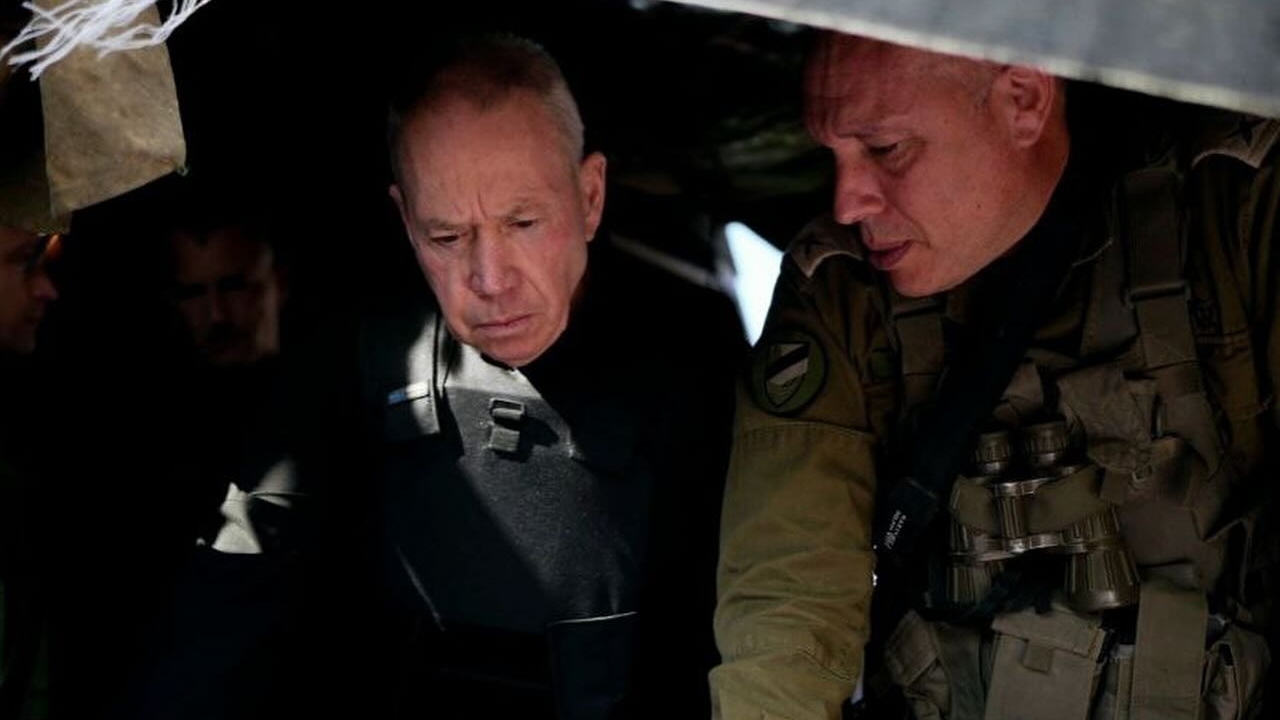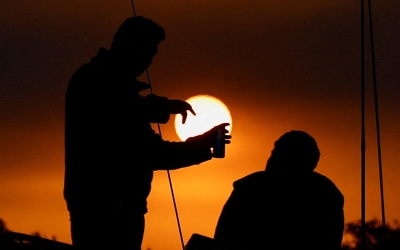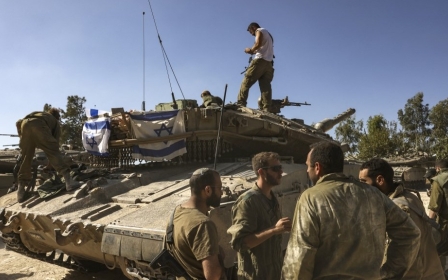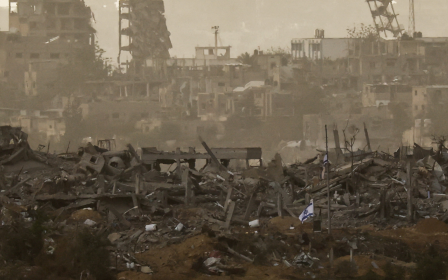War on Gaza: US rights group calls on ICC to probe Israeli commanders for war crimes

A US-based rights group has submitted a dossier to the International Criminal Court, calling on it to prosecute a list of 40 senior Israeli commanders for war crimes over their involvement in the country's military campaign in Gaza, which has so far killed more than 20,000 Palestinians.
Democracy for the Arab World Now (Dawn), a rights organisation founded by Jamal Khashoggi, who was a Saudi columnist for the Washington Post and Middle East Eye, filed the submission on Wednesday and called on the ICC to investigate what it said were the "prime suspects" in Israel's war on Gaza.
"These 40 IDF commanders who have been responsible for planning, ordering, and executing Israel's indiscriminate bombardment, wanton destruction, and mass killing of civilians in Gaza should be prime suspects in any ICC investigation," Sarah Leah Whitson, Dawn's executive director, said in a statement.
"While Israel has done its best to conceal the identities of many of its officers, they should be put on notice that they face individual criminal liability for the crimes under way in Gaza."
Dawn's list includes Israeli Defence Minister Yoav Gallant, the Israeli military's Coordinator of Government Activities in the Territories Ghassan Alian, and the commander of the 215th Artillery Brigade Ehud Bibi. The rights group said it would continue to publicly release the names of all 40 commanders on its list submitted to the court in the coming month.
Middle East Eye reached out to the Israeli defence ministry for comment, but did not receive a response by the time of publication.
War broke out in Gaza on 7 October, following an attack by Hamas and other Palestinian armed groups on southern Israel - which caught its military off guard, killed 1,200 people, and led to the capture of 240 people who were taken back to Gaza. While some have been released, more than 100 are being held in Gaza.
Israel responded with force, imposing a total siege on the Strip and launching an aerial bombardment followed by a ground invasion that has so far killed more than 20,000 Palestinians, according to the Palestinian health ministry. The majority of those killed are women and children.
Follow Middle East Eye's live coverage of the Israel-Palestine war
In addition to the mounting death toll, Israel's military campaign has displaced 1.9 million Palestinians, targeted civilian infrastructure, including mosques and hospitals, and has led hundreds of scholars to warn that Israel may be committing genocide against Palestinians.
"Intentionally depriving civilians of basic necessities, including by blocking or even impeding the provision of humanitarian relief supplies, is a war crime under the Rome Statute of the ICC," Dawn said.
"Intentionally targeting medical facilities, ambulances, places of worship, places of culture, and most seriously the indiscriminate bombardment of civilian areas, are crimes in the Rome Statute."
Dawn's submission to the ICC is one of several the court has received from both international non-governmental groups as well as countries who are calling on the court to investigate whether Israel has committed war crimes in Gaza.
The countries of Bangladesh, Bolivia, Comoros, and Djibouti have asked the ICC to investigate Israel for alleged war crimes in Gaza.
And organisations like Reporters Without Borders (RSF) and the Al Jazeera news network have also requested the tribunal to investigate the killing of journalists in both Israel and Palestine.
Israel and the United States are not parties to the Rome Statute, which established the ICC. However, the ICC's mandate does include the Palestinian territories.
Karim Khan, a prosecutor at the ICC, went to Israel and the Palestinian territories in early December in a visit in which Palestinians accused the prosecutor of bias. Khan was not allowed by Israel to enter Gaza, and Palestinians said he declined an offer to visit hundreds of illegal Israeli settlements, checkpoints and refugee camps in the occupied West Bank.
Middle East Eye propose une couverture et une analyse indépendantes et incomparables du Moyen-Orient, de l’Afrique du Nord et d’autres régions du monde. Pour en savoir plus sur la reprise de ce contenu et les frais qui s’appliquent, veuillez remplir ce formulaire [en anglais]. Pour en savoir plus sur MEE, cliquez ici [en anglais].





